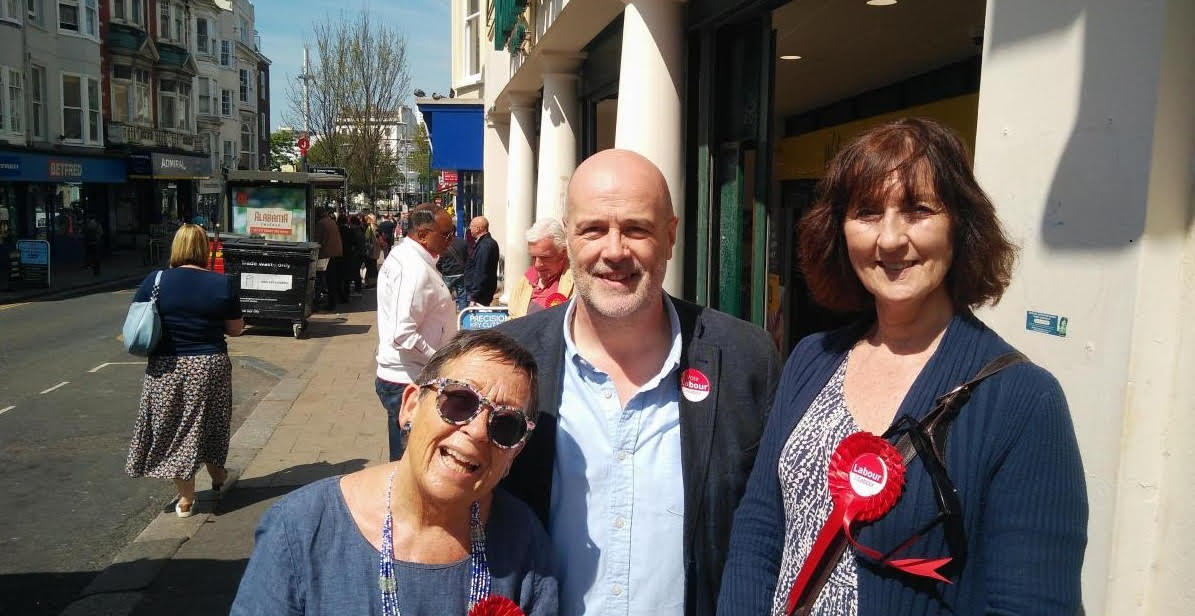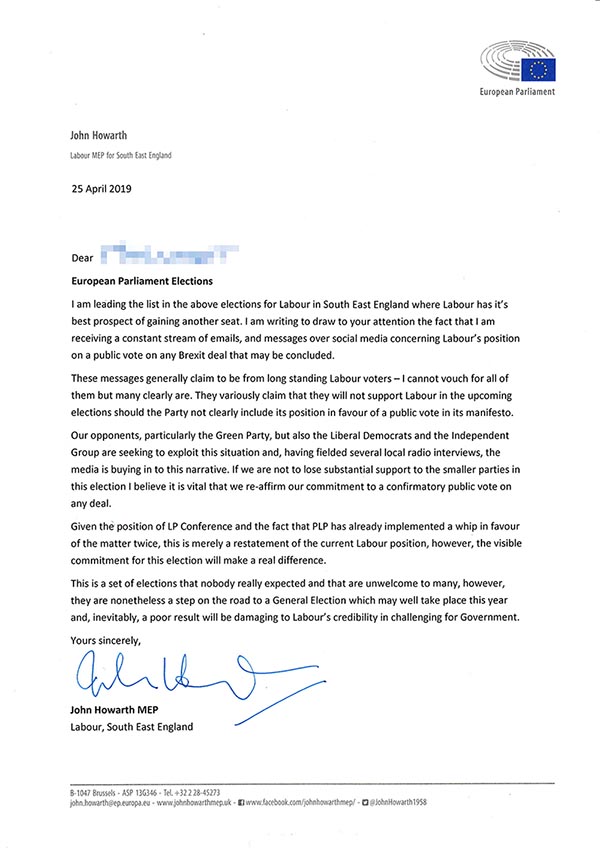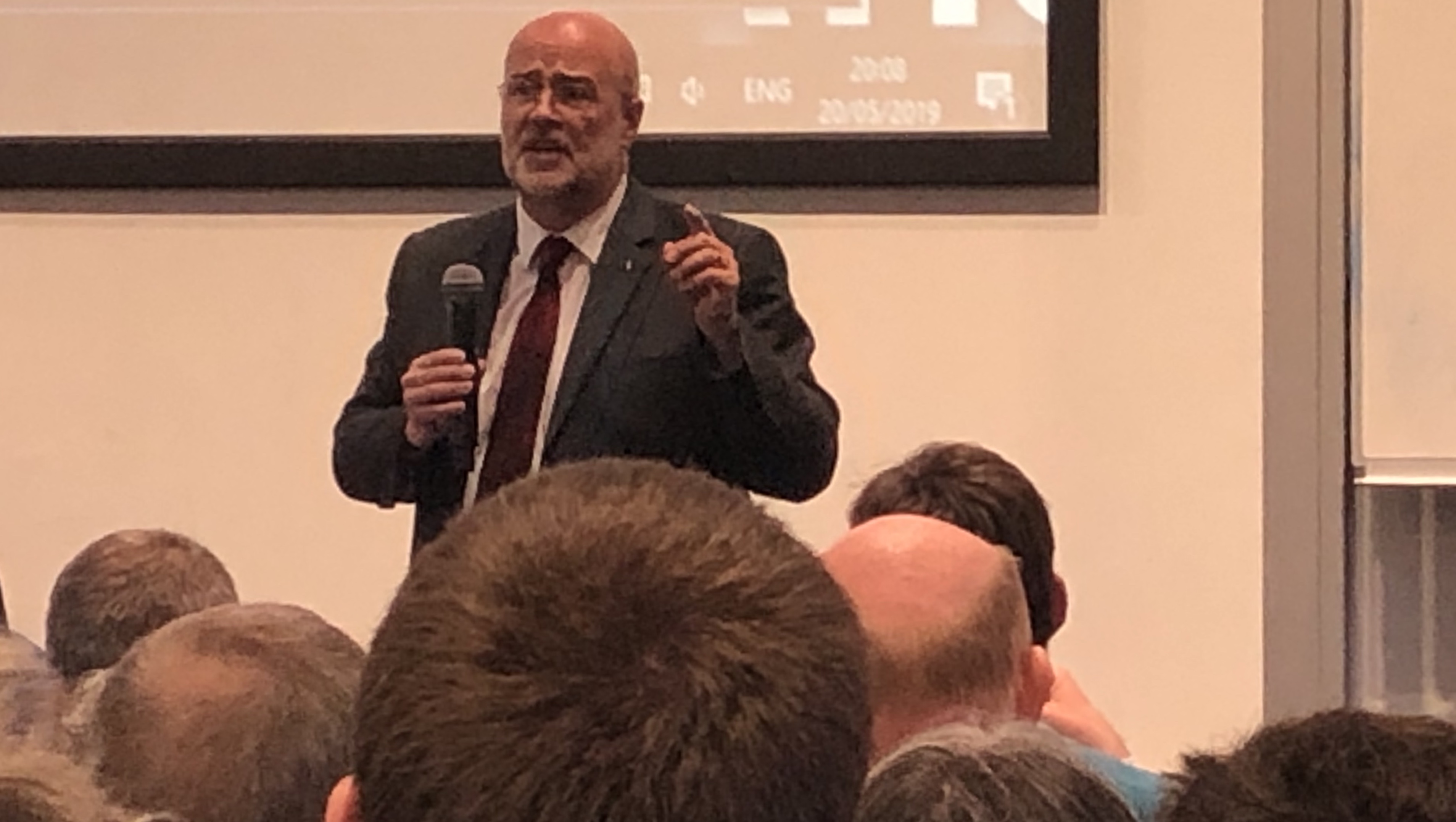We were campaigning at a street stall in Canterbury. I was in conversation with one of the many Labour voters doubting their support for the Party in the European Parliament election. I caught a man speaking as he walked by to one of my team who looked surprised. She later told me the man had said to her, “Sorry, you don’t want to talk to me, I’m Jewish.” In my 45 years working for the election of Labour representatives it was a new low.
Last week the UK’s Equalities and Human Rights Commission (EHRC), a Labour creation, commenced a statutory inquiry into the ongoing issues of antisemitism that have dogged the Labour Party and led to a situation where Labour is perceived by many as an institutionally anti-Semitic organisation. Opposing discrimination was a fundamental principal of the Labour Party I joined. It was also the Party that the Jewish people I knew and knew of largely supported. Over the years the paces forward down the long road against discrimination and toward equal treatment had more often than not been made by Labour governance. I have often cited these steps as the Labour achievements of which I am most proud, because they are the embodiment of social changes that last. Now I find myself deeply ashamed of the mire into which my Party has slid.
For Labour to once again become credible as a party of government it must address the contamination of its politics by anti-Semitic tendencies and the failures of leadership that have destroyed our credibility over this issue.
The new anti-Semitism
Everything takes place in a wider social context. Eighty years after the holocaust the phenomenon of anti-Semitism in Europe is once again apparent. In this alarming climate, we need a Labour Party credible in fighting anti-Semitism - at present it is not.
Nothing stays the same, while crass vandalism against synagogues and graveyards occur again and anti-Jewish graffiti appears, the new manifestations of anti-Semitism are often less blatant, more insidious, more difficult to identify. In an excellent report launched at a conference in the European Parliament during my first term by Austrian S&D MEP Josef Wiesenhalter set out the features of this new anti-Semitism and the conclusions should be taken seriously by all democrats. In the case of Labour’s anti-Semitism problem a key element has been the conflation of the actions of the government and state apparatus of Israel in relation to the Palestinian people with Jewish people and individual Jews. Unless we make this simple but fundamental distinction, we slide very quickly into dangerous territory. It is quite simple to oppose the injustices inflicted on Palestinians without doing so in an antisemitic way.
However too many on the left have failed in this respect. The dubious maxim of ‘my enemy’s enemy is my friend’ has too often led individuals on the left to make the wrong decisions in associating with reactionary regimes and extremist organisations. The failure to criticise or distance themselves from unacceptable language and forms of political action have undermined the ability of Labour leaders to deal with instances of anti-Semitism. Cloaks of anonymity in the online world have enabled antisemitic individuals to place themselves within currents of the left formerly well beyond the Labour mainstream and to spread hatred. These, I still believe, are the actions of the few and are not representative of ‘the left’ but inaction by ‘the left’ has unfortunately been seen as acceptance.
Failure to act
When the problems surfaced Labour’s leaders failed to meet the test. The response had to go beyond process - it required strong individual action, high profile direct opposition to online anti-Semitism that said ‘not in my name’ but it didn’t happen. A history of keeping the wrong company made that difficult but it should not have made it impossible. As politicians we appear in lots of photographs and we attend lots of events without control or knowledge of other attendees - it happens, but when it happens regularly and systematically it’s a true sign of a problem. Politics also necessitates talking to ‘the wrong people’ - but there are ways and means of going about it. None of this should have been a barrier to stamping out the problem early on - the failure to do so, and instead the production of a report commonly seen as a whitewash, instead gave the impression of not wanting to address the problem clearly or firmly and that the view that ‘there are no enemies on the left’ prevails at the highest level. The suspension of NEC member Pete Willsman following an outburst meeting the definition of anti-Semitism now accepted by Labour after a self-harming process of delay and indecision would confirm this failure. Mr Willsman was supported by the Momentum organisation in his successful election to the NEC despite a similar outburst in a move that signaled tolerance of anti-Semitism and manifest double standards.
Moving beyond the climate of fear
Travelling around South East England in the recent election campaign and talking to hundreds of Labour activists it is clear that a climate of fear now exists within Labour. The notion of Labour as a ‘broad church’ is self-evidently under threat and does not form part of the thinking of many who see themselves as supporting the current leadership. Whether it is online trolling, threats of politically motivated deselection of hard-working representatives or spiteful removal of long standing lay activists in CLP posts the message is clear - comply with the regime or face the consequences. Long standing members appalled by the anti-Semitic acts of the very few. The EHRC investigation must have evidence and must be seen to call to account the failure to act as well as direct involvement. To fail to act is a failure of leadership and that means on a local level too. It is in the clear interests of the current Labour leadership for the EHRC investigation to produce clear and decisive conclusions that enable Labour to move on from this untenable position. I will be submitting a statement to the investigation from a European and regional perspective. If individuals in the CLPs of South East England have evidence that they wish to submit but feel intimidated I would urge them to supply material through my office.













